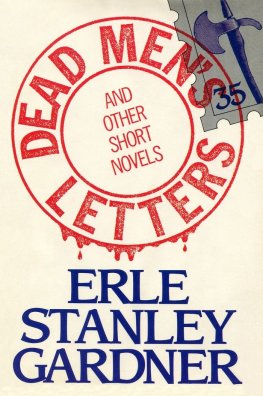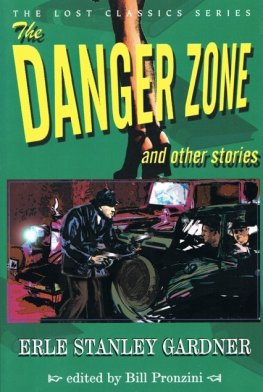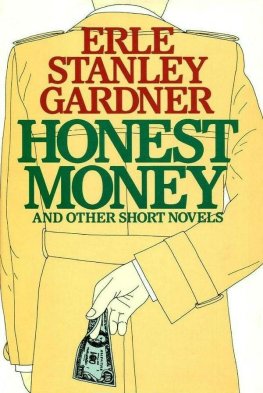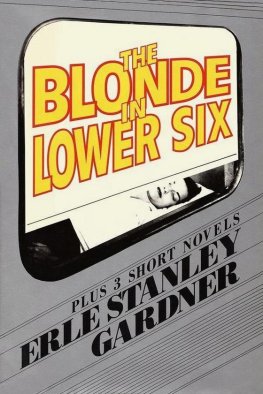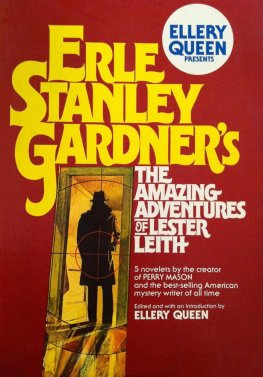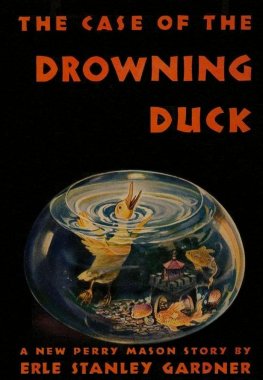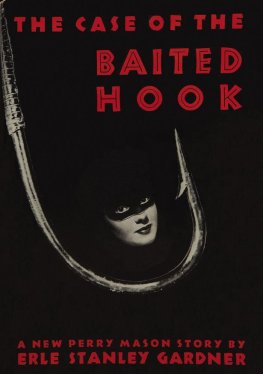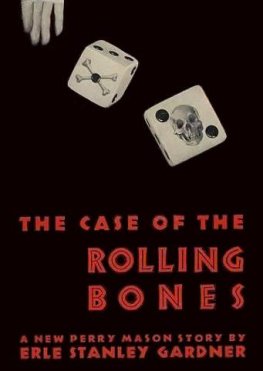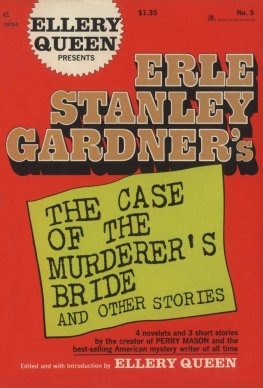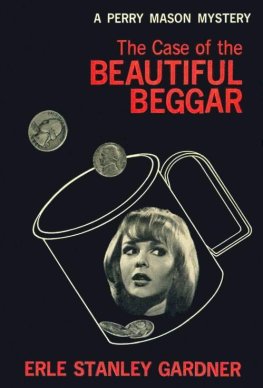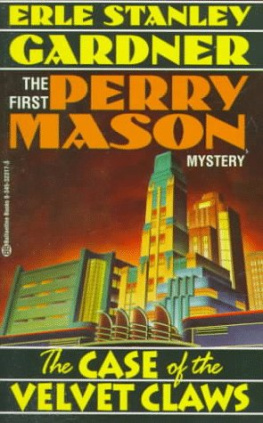Erle Stanley Gardner
The Adventures of Paul Pry
Big Front Gilvray had one of the sweetest rackets in the world cinched until Paul Pry picked Mugs Magoo out of the gutter. Then was formed a strange partnership that made the big shots of the underworld look like a bunch of saps.
To the casual observer, Paul Pry was merely a well-dressed young man, idling away a few minutes between spells of greater idleness. The faultless clothes, the highly polished cane, the air of utter boredom with the world in general, all proclaimed him for what the casual observer would have said he was.
A more careful observer would have noticed that the eyes held a steely glitter; that the snapping rhythm of the flexible wrist as it swung the polished cane indicated a trained fencer; that he was watching the passing crowd with swift interest.
But only a mind-reader could have told that there was any connection between Paul Pry and the huddled figure which crouched at the side of the kerb, one empty sleeve dangling in wrinkled dejection, one gnarled hand holding out a hat, in which were several pencils and a collection of small coins.
An expensively gowned woman, slightly inclined to fullness under the chin, paused impressively, fumbled at her purse, dropped a coin. The huddled figure mumbled a thanks, flashed a furtive glance at Paul Pry, then lowered his eyes.
The woman passed on. The figure raised its glassy eyes once more to the hurrying throngs that poured past the corner. Those eyes swept faces with expressionless speed. They were big eyes, unwinking eyes, moist eyes and they never forgot a face. For the huddled figure was that of Mugs Magoo.
He had received his nickname from his uncanny ability to recall faces. An accident had deprived him of his right arm at the shoulder. A political shake-up had swept him from the detective force of a large city. Unemployment and booze had done the rest.
Then he had been picked from the gutter by Paul Pry, and one of the most unique partnerships organized which had ever existed for the bewilderment of police and crooks alike.
For Paul Pry lived by his wits. And none but Paul Pry knew how he lived. Even Mugs Magoo didnt always know how his employer used the information which he relayed to him by a complicated series of signals.
A well-tailored man with undershot jaw and derby hat walked past. There was a swagger to his shoulders, a swing to his stride, an air of conscious power which clung to him.
Mugs Magoo swept glassy eyes over the mans face, raised the hand which contained the pencil-filled hat and swept it in a half circle.
By that signal Paul Pry knew that the man was a gunman for a gang. A twitch of the cane informed Mugs that Paul wasnt interested in gunmen just then.
A taxicab swung to the kerb. The man who elbowed his way from the door and held out a pudgy, well-cared-for hand to the driver, with an exactly counted assortment of small coins, was the type one would have picked as a prosperous banker, a senator or a corporation lawyer.
Mugs Magoo dipped the hat sharply, a signal that the man was a big shot. The hat moved in and out, then Mugs Magoo bowed his head twice.
Paul Pry regarded the impressive individual with renewed interest. Mugs Magoos signals meant that the man was the brains of a gang, that he handled everything from confidence games to gem robberies, and that he was too slick for the police to pin anything on.
And Mugs Magoo never made a mistake. It was his sole function to know the gang world from A to Z, and Mugs Magoo never forgot.
Paul Pry raised a hand to his hat, carefully adjusted it, gave one final flip to the cane and sauntered to the kerb.
And Mugs Magoo, holding his hat between his knees, scooped the remaining pencils into a bundle, pocketed the coins, donned the hat, and arose to his feet. Paul Prys signals meant that he was interested, and Mugs Magoos duties for the day were over.
The distinguished-looking gentleman, who was a crook, stood upon the sidewalk and gazed about him. Beneath the heavy brows the impatient eyes showed keen as flashing rapiers. Paul Pry, intercepting that gaze, breathed a sigh of satisfaction. Here was a foeman worthy of his steel.
A girl rounded the corner, stood for a moment, then came within the field of those piercing eyes.
Ah, Miss Montrose!
She started at the sound of the voice, looked around her with the swiftly furtive glance of one who wishes to guard against being seen. Then, and only then, she smiled guardedly.
The big man elbowed her, bowed affably, took the girls arm in his pudgy hand and guided her toward the door of a restaurant.
Paul Pry followed them after a few minutes.
They were seated at a corner table. The girl made futile motions with knife and fork while the big man, leaning half across the table, talked rapidly, forcefully. Once or twice he jabbed his finger at the girl, a forceful gesture of command.
The girls eyes swept uneasily from her plate to the man before her, flickered around the room, came back to the plate again. At length she nodded.
At her nod the man settled back in his chair, lowered his eyes to his plate and attacked the food with that eager voracity which heavily fleshed men customarily display at meals.
The girl did not eat. Once or twice she asked a question. The man replied by brief grunts, a nod, or a swift shake of negation. He seemed to have wasted all the words he intended to.
Paul Pry ordered a sandwich, ate it, and sauntered to the street. Ten minutes later the man and girl emerged. Once more the man let his eyes bore into those of the girl while he talked rapidly, swift, finger-jabbing sentences of instruction.
The girl was impatient, nervous. She nodded half a dozen times, made to move off, but the big man restrained her with a word, held her while he repeated some last minute instruction.
Then they separated, the man to a cab, the girl to mingle with the luncheon throngs.
Paul Pry elected to follow the girl.
She walked swiftly for a block, then entered a gift shop.
The making of the purchase consumed some time. It was a small incense burner, and the girl viewed it from different angles, turned it upside down, carried it to a better light, before finally opening her purse.
There followed some five minutes while the clerk was busy with wrappings, getting excelsior, a wooden box, heavy wrapping paper.
Quite evidently the girl was intending to have the incense burner shipped, and was particularly careful to insure against breakage. Twice she interrupted the packing process to make sure that it was being done to suit her.
At length she clasped the package under her arm and left the store.
Paul Pry, who had been standing idly before the show window of the gift store, had been an interested spectator. Now he followed the girl, swinging his cane the while, humming a little tune.
The girl walked two squares, came to a motor transfer office. Here a private line offered rapid service to shippers of merchandise. The line catered to suburban deliveries and ran a series of trucks in radiating lines from the metropolis.
The girl had lost the furtive look of haunted guilt which had characterized her as she talked with the pompous gentleman. Her actions now were definite, assured, the moves of one who is sure of herself.
So elaborately casual was she that Paul Pry, under the guise of asking information concerning a package, was able to press almost to her elbow as she stood at the counter.
The girl was shipping the incense burner. Pry was unable to get the name and address of the person to whom it was going, but he could see the bills of lading passed over to the girl, hear her light laugh, catch a glimpse of the inside of her purse as she took out the silver coin which covered the transportation charges. That purse was crammed with bank notes.

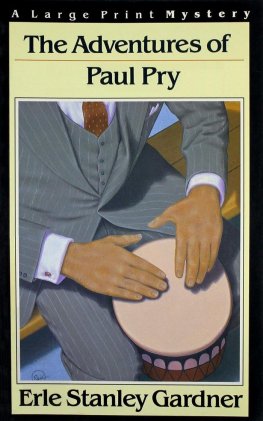
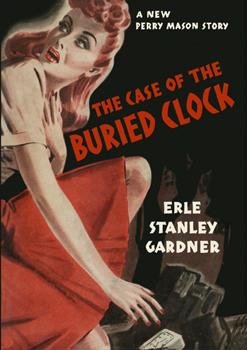
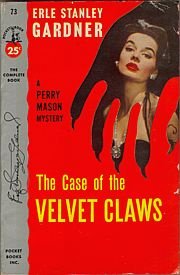
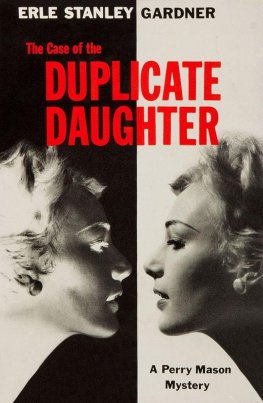
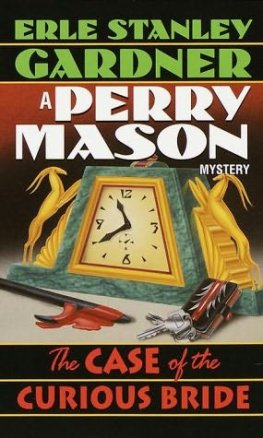
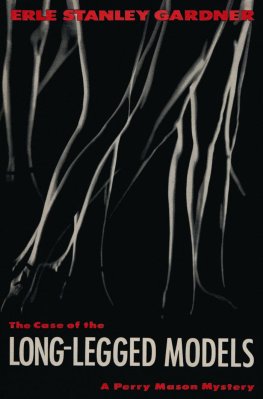
![Erl Gardner - The Case of the Deadly Toy [= The Case of the Greedy Grandpa]](/uploads/posts/book/924181/thumbs/erl-gardner-the-case-of-the-deadly-toy-the.jpg)
